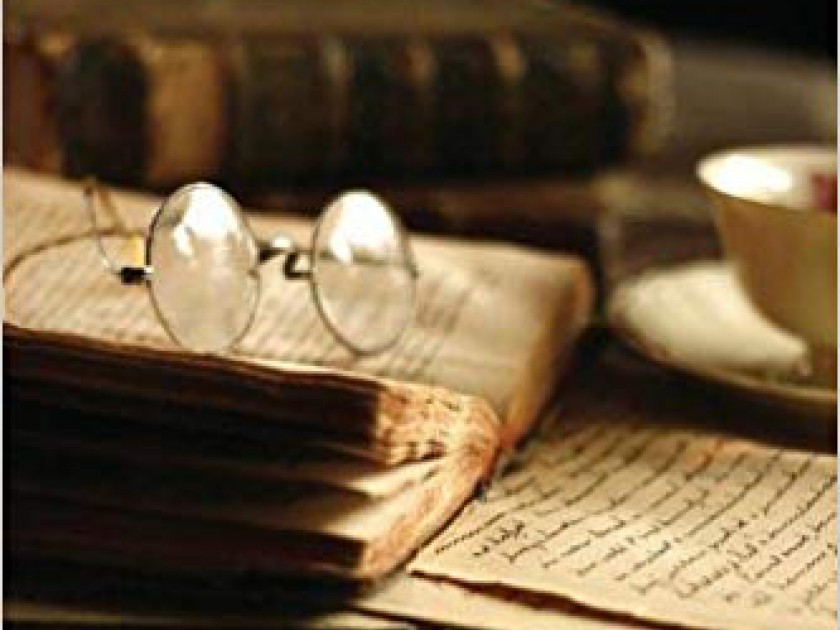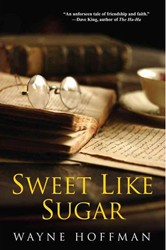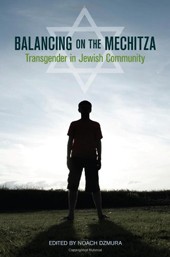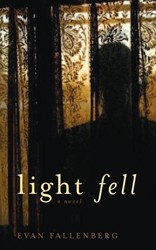
Earlier this week, Wayne Hoffman wrote about a funny thing and shared the meaning behind the names of a few of his characters.
When I was first coming out 25 years ago, there were precious few books about being gay and Jewish. Thankfully, that’s not the case today. There are enough to fill whole bookcases. But will anyone who isn’t gay read them?
Conventional wisdom in the publishing industry says that non-gay people won’t read books with gay themes – with the notable exception of works by humorists, such as David Sedaris or Augusten Burroughs, who play their lives for laughs. Straight people can’t relate seriously to gay life, the thinking goes; they don’t know from such things, and they don’t want to know.
Even if there’s a kernel of truth in that notion – and I fear, sadly, that there often is – straight Jewish readers in particular should be able to bridge this culture gap by choosing Jewish gay books: While some of the gay content might be unfamiliar, at least the Jewish content will provide a point of identification.
Where to start? Well, my own book, of course. (Here comes the plug.) Sweet Like Sugar includes characters representing a diverse array of Jewish practice, from secular to Orthodox, engaged to alienated. It’s a story of a young man named Benji Steiner, who’s rejected the Jewish traditions he grew up observing, searching for a place where he can still connect to his community. But it also follows Benji on his search for Mr. Right. If you’ve never read a book with gay characters and themes, I hope this’ll be your first.
But I also hope it won’t be your last. There are dozens, perhaps hundreds, of books on gay Jewish subjects. At the risk of leaving out many books and authors whose work is worth your time, here’s a brief list of GLBT books that non-gay Jewish readers will relate to. This list isn’t comprehensive, or representative of anything more than my own bookshelf, so feel free to add your own favorites.
Start with an anthology – it’ll give you a broad survey of what’s out there, and turn you on to authors whose work you’ll want to read more deeply. Nice Jewish Girls, a lesbian anthology edited by Evelyn Torton Beck, was the first of its kind, published in 1982. Twice Blessed, edited by Christie Balka and Andy Rose, came out a decade later, and includes dozens of personal and topical essays on everything from community to spirituality. Queer Jews, edited by David Shneer and Caryn Aviv, came out several years after Twice Blessed, and shows the continued evolution of thinking around GLBT issues for Jews. These three together provide a great historical background, as well as an introduction to some of the most important thinkers on these subjects.
Once you’ve got that foundation, check out a few more recent collections. Mentsh: On Being Jewish and Queer, edited by Angela Brown, features essays by some of the biggest GLBT literary names around. Found Tribe, edited by Lawrence Schimel, collects coming out stories from Jewish authors. And Balancing on the Mechitza, edited by Noach Dzmura, is the first Jewish anthology to focus specifically on transgender issues.
If you’ve got a particular area of Jewish interest, there’s probably a gay-themed book that’s right for you. If enjoy reading about Israel, check out Between Sodom and Eden, by Lee Walzer, about the (mostly positive) situation for gay Israelis. If you’re drawn to Holocaust tales, read Gad Beck’s An Underground Life, the true (and truly amazing) story of a gay Jew who survived the Holocaust in hiding in Berlin. If you’re invested in cultural politics, Jay Michaelson’s persuasive God vs. Gay?: The Religious Case for Equality comes out this fall. Prefer books about spirituality? The Choosing, by Andrea Myers, recounts the unusual personal journey that led her from a Lutheran upbringing to an adult life as an ordained rabbi – and out lesbian. If memoirs are your thing, here are three to start with: Lillian Faderman’s Naked in the Promised Land, Stanley Ely’s In Jewish Texas, and Lawrence Mass’s Confessions of a Jewish Wagnerite.
Lots of us prefer reading fiction. Sweet Like Sugar isn’t the only novel about gay and Jewish subjects. Two of my favorites are The Same Embrace by Michael Lowenthal (about twin brothers divided by religiosity and sexuality), and Faith for Beginners by Aaron Hamburger (about a mother and her gay son on a journey of surprising self-discovery in Israel). Other great family-focused novels include The Lost Language of Cranes by David Leavitt (set in New York City) and Light Fell by Evan Fallenberg (set in Israel). Sarah Schulman has written daring and complex books – fiction and nonfiction – for decades; start with her novel Rat Bohemia, which will make you look at “family” in a new way, and then work your way through her other titles. T Cooper’s Lipshitz Six, or Two Angry Blondes, is one of the more unusual novels in recent years, combining an old-fashioned Jewish immigrant story with a modern-day gender-bending tale of troubled youth. Leslie Feinberg’s Stone Butch Blues blazed a trail for other transgender stories almost 20 years ago, and remains a classic. There’s much more. When in doubt, pick up almost anything (fiction, nonfiction, essays, mysteries) Lev Raphael ever wrote – beginning with his short story collections Dancing on Tisha B’Av and Secret Anniversaries of the Heart.
Now I’m going to throw in someone who usually doesn’t make this kind of list: David Feinberg. His books – two novels and one collection of essays – aren’t “about” being Jewish in the way that many of the titles above are. But his stories are steeped in Jewish identity and culture, and focus on Jewish characters; if you think Woody Allen makes Jewish movies, you’ll understand why Feinberg’s books are Jewish, too. Sardonic yet earnest, enraged yet hilarious, Feinberg was also one of the finest chroniclers of the AIDS epidemic, until his death at age 37 in 1994. (I think of him as a cross between Larry Kramer and Paul Rudnick – a front-line activist, but always on the lookout for something to laugh about.) Follow his neurotic Jewish protagonist B.J. Rosenthal through Eighty-Sixed, Feinberg’s dazzling debut novel, which contrasts gay life in New York before the epidemic to a time when gay men started dying in droves. Follow B.J. again in the sequel Spontaneous Combustion, in which he continues his search for love and sex in what has become an unrecognizable war zone. Or pick up Queer and Loathing, Feinberg’s biting collection of nonfiction essays, published weeks after his death, to get a sense of just how horrible things became – yet how humor, coupled with resolve and anger, helped so many people endure and even resist for as long as they could. That’s something every Jew should be able to understand.
Wayne Hoffman is a veteran journalist, published in The New York Times, Wall Street Journal, Washington Post, Hadassah Magazine, The Forward, Out, The Advocate, and elsewhere; he is managing editor of the Jewish magazine Tablet. The author of The End of Her: Racing Against Alzheimer’s to Solve a Murder, he has also published three novels, including Sweet Like Sugar, which won the American Library Association’s Stonewall Book Award. He lives in New York City and the Catskills.



